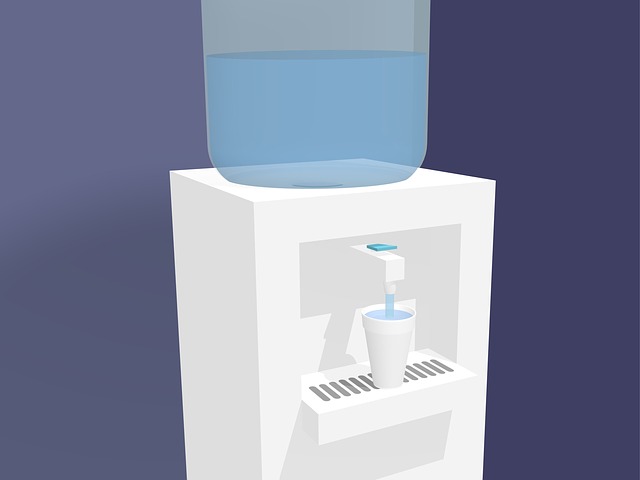
Charcoal filters are all too common in households around the world, they’re cheap and they work well. Often compared to other methods of filtration, one query that often comes up is how long it takes to filter water with charcoal, how much water can flow through a charcoal filter and if the filtration time has any influence on the water quality.
It takes 2-3 hours to achieve effective filtration if using a chunk of activated charcoal in a bottle of water. However, near-instantaneous filtration is possible when using an actual activated charcoal filter due to an increased surface area exposing more charcoal to the flowing water.
The more common option involves a purposefully designed filter with activated charcoal as the medium. These filters come in the form of a tap-mounted solution or in the form of a portable jug, they’re designed to maximize the surface area of carbon that the water comes in contact with and therefore offer an increased flow rate. However, the more traditional option of just exposing water to activated carbon in a jug or bottle is still very effective, if time is less of an issue. The strict time calculation varies a lot between using the raw material and a purposefully designed filtration system. Although that leads to the next question, do the instantaneous systems perform to the same standard as a lump of charcoal?
Tap Mounted Filters: Almost Instantaneous
The most efficient option is the tap-mounted filter system, these usually are easily mounted on the tap/faucet and are ready to function as soon as they are installed. They can also be installed under the sink prior to the tap although the general principle is identical. These in-line filter systems need to be instantaneous, otherwise, they would not serve their purpose and would result in delays at the tap before water begins to flow. One disadvantage of the in-line systems is that they filter 100% of the water that passes through them, meaning they are worked more intensely and need to be replaced more often. You may have noticed this when water filters start to produce an increasingly slow flow rate, this is a sure sign that you need to either clean or replace your charcoal filter! Another disadvantage of the in-line or tap-mounted solutions is that they are significantly more expensive than the other two options, with the potential to cost in excess of $100 USD, coupled with the increased maintenance costs, that convenience certainly is appealing though!
Filter Jugs: 1-5 Minutes
Based on a very similar principle to the in-line systems, filter jugs incorporate activated carbon into a filter that sits below a tank that gets filled with unfiltered water, the water then drips down through the charcoal filter and ends up in the filtered reservoir at the base of the jug. This filtered reservoir is then ok to drink from. This whole process generally takes between 1-5 minutes, depending on the filter and the size of the judge, although most jugs are designed to fit in the refrigerator and can hold around 2 litres of water, or half a gallon.
Why do jugs filter slower than tap-mounted solutions?
If you have used one of these filters before in the form of a jug, you may have noticed that when you fill the top section of the jug it takes a while for the water to filter through to the bottom, whereas on-demand filter systems fitted to a tap or under-sink seem to have a much faster flow rate. This differential comes down to the size of the filter and the amount of water that can pass through it in a given time. In the case of the charcoal filter jugs, their general use doesn’t require rapid filtration because they often sit in the fridge for hours on end without being used, meaning they have a minimal throughput capacity as they would simply take up unnecessary space. On-tap instant filtration systems do require the filtration rate to match the tap flow rate, this is why the filters themselves are considerably larger than jug-based systems.
Charcoal in a bottle: 2-3 hours

Placing a lump of activated charcoal in a bottle may seem like a pointless venture however it is a simple filtration technique that does yield great results. The activated charcoal slowly absorbs the impurities in the water thanks to its incredible internal surface area and natural affinity for impurities in water. This of course takes time as there is limited circulation of water, leading to the generally agreed value of two to three hours to purify a bottle of water. There is, of course, a range, within one hour your water will contain considerably fewer contaminants and leaving it overnight will likely remove the vast majority of contained impurities available to be removed.
On the off chance, you are thinking about throwing a piece of regular charcoal or barbecue charcoal into a bottle of water to improve its quality, Hold Up! There is a distinct difference between activated charcoal and regular charcoal and I encourage you to read my article on the topic here to make sure you aren’t making any mistakes!
If you are interested in buying some activated charcoal to purify your water naturally, you can pick it up at very affordable prices on amazon here.

If you are interested in buying some activated charcoal to purify your water naturally, you can pick it up at very affordable prices on amazon here. It isn’t the most user-friendly method but it does work, in addition to looking pretty cool!
Is instantaneous filtration better than charcoal in a bottle?

This may come as a surprise, however, both methods should theoretically produce similar results in terms of water quality. It may be easy to think that the increased time the water is exposed to a piece of charcoal would lead to a more pure solution, however, the design of charcoal filters overcomes this issue as the flow rate is taken into account and the water gets sufficient exposure to activated carbon to rid it of impurities.
If you are interested in some options on how to filter your water with charcoal both jug-type filters and instantaneous options, there is a concise guide in one of my articles here.
https://www.sciencedirect.com/topics/pharmacology-toxicology-and-pharmaceutical-science/activated-carbon#:~:text=On%20average%2C%201%20g%20of,square%20meters%20of%20surface%20area.


